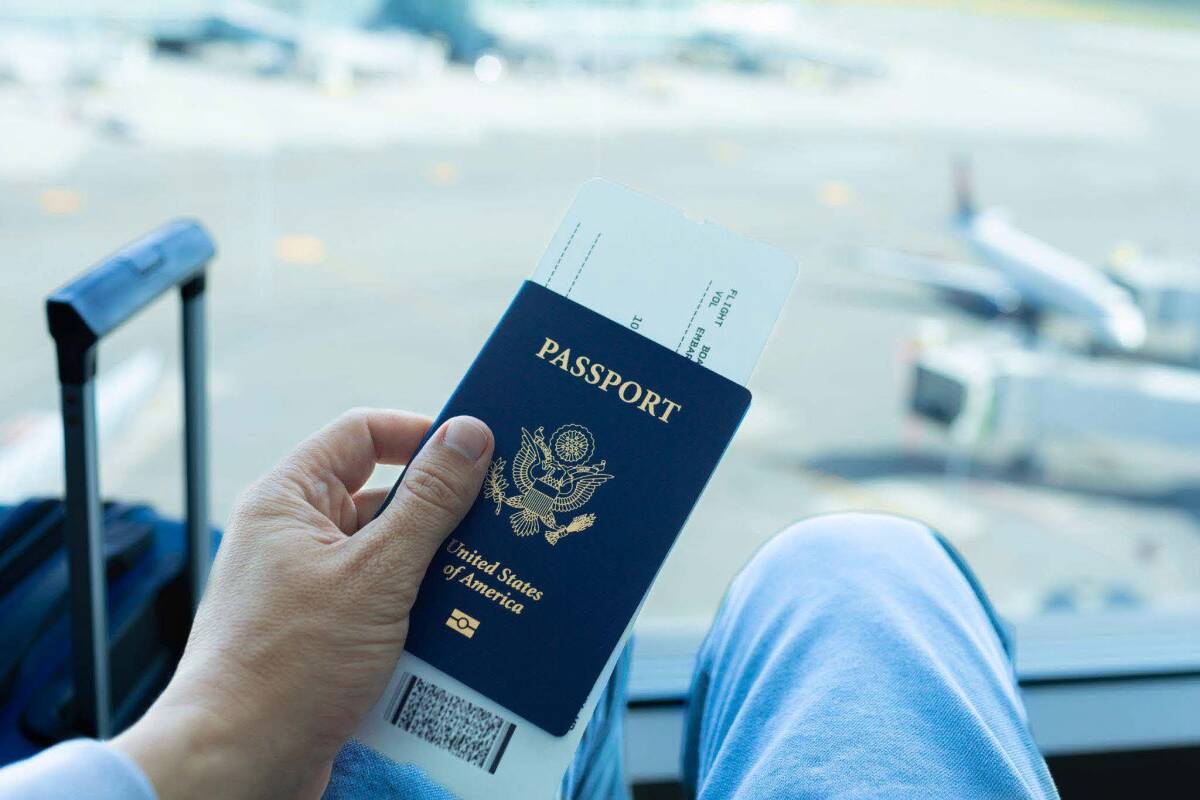
Traveling internationally is an exciting and enriching experience, but it can also come with a series of risks. Whether you’re exploring far-flung destinations, going on a business trip, or visiting family abroad, one thing is certain: passports are your essential travel document. Without it, your plans could be delayed or even derailed. This is where passport insurance comes in.
In this comprehensive guide, we will explore the importance of passport insurance, how it works, what it covers, and why it’s an essential part of any travel plan. By the end of this blog post, you will have a clear understanding of how passport insurance can offer peace of mind and help ensure your travels go smoothly.
What is Passport Insurance?
Passport insurance is a specialized travel insurance policy designed to protect your passport during your travels. It generally covers the replacement costs if your passport is lost or stolen while abroad. Some policies may also offer assistance with navigating the bureaucracy of replacing your passport, such as helping you connect with your country’s embassy or consulate.
In addition to covering the cost of a replacement passport, passport insurance may also help you with other associated expenses, like travel delays, missed flights, or other inconveniences that arise from losing a passport. While not every travel insurance policy includes passport coverage, it’s often offered as an add-on or standalone option.
Why Do You Need Passport Insurance?
Your passport is one of the most valuable and critical documents when traveling internationally. Losing it can leave you stranded, delayed, and stressed out. Passport insurance provides protection in the event that your passport is lost, stolen, or damaged, especially in a foreign country where replacing it can be complicated and costly. Here are several reasons why passport insurance is worth considering:
1. Lost or Stolen Passports
The most obvious risk when traveling is the possibility of losing your passport or having it stolen. While you might be able to get by for a short period without your passport, longer-term issues can arise. A lost or stolen passport can cause major travel disruptions, such as:
- Delays in travel: Missing your return flight or not being able to enter a new country because your passport is no longer valid.
- Legal issues: Without a valid passport, you may not be able to stay in the country or be at risk for violating immigration laws.
- Extra costs: Replacing a passport can be costly, and it’s even more expensive if you’re abroad.
Passport insurance can help offset these costs, both in terms of financial protection and the practical assistance needed to get your travel back on track.
2. Travel Disruptions Due to Lost Documents
In some cases, the process of replacing a passport may not be quick or easy. You may need to visit consulates or embassies, which can involve long waiting times, paperwork, and additional fees. Passport insurance can help minimize the disruption to your plans by offering assistance and helping cover the costs of necessary arrangements, like:
- Temporary travel documents: Depending on the country and the severity of the situation, you may need temporary documents for re-entry or for your flight back home.
- Travel arrangements: You may have to change flight dates, accommodations, and ground transportation to accommodate the delays caused by the loss of your passport.
With passport insurance, the financial burden of these extra costs is reduced.
3. Assistance in Navigating Local Bureaucracy
Replacing a passport can be a bureaucratic nightmare, especially in foreign countries where you might not speak the language or understand local systems. Many passport insurance policies offer additional support, such as:
- Access to emergency assistance: Some insurers provide 24/7 customer service to guide you through the process of reporting your lost or stolen passport to local authorities and contacting your home country’s embassy.
- Translation services: Some policies may even cover translation fees to help you with documents or communications during the replacement process.
4. Peace of Mind
Traveling internationally is already stressful, especially when you’re visiting unfamiliar countries or navigating busy airports. Passport insurance gives you peace of mind by ensuring that if anything goes wrong, you’re covered. Knowing that you have a safety net in place in case something happens to your passport can help reduce anxiety, letting you focus on enjoying your travels.
What Does Passport Insurance Cover?
Passport insurance typically covers a range of situations related to the loss, theft, or damage of your passport. However, the specific details of coverage can vary depending on the policy and the insurer. Some of the most common benefits included in passport insurance are:
1. Replacement of Lost or Stolen Passport
The most basic form of passport insurance covers the cost of replacing your passport if it is lost or stolen during your trip. This may include:
- Cost of obtaining a new passport: Passport insurance will reimburse you for the fees associated with getting a new passport, which can vary depending on your country of citizenship and where you’re located.
- Expedited passport services: If you need your passport urgently to continue your travels, some policies cover the additional costs for expedited services.
2. Emergency Travel Assistance
In case your passport is lost or stolen, travel assistance services provided by the insurer can help guide you through the steps to replace it. Some of the assistance services might include:
- Emergency contact with the embassy or consulate: You will often have access to a helpline that connects you to your embassy or consulate to report the loss.
- Help with temporary travel documents: If needed, you may be issued emergency travel documents to help you return home or continue your travels.
3. Trip Interruption or Cancellation Costs
Losing your passport can cause delays, forcing you to cancel or change your travel plans. In addition to replacing your passport, passport insurance may cover:
- Trip interruption costs: If you miss a portion of your trip due to passport issues, some policies may reimburse you for the lost costs of hotels, tours, or flights.
- Trip delay benefits: If you are delayed because of passport issues, insurance may reimburse you for additional accommodation, meals, and transport expenses.
4. Legal and Document Replacement Assistance
In addition to your passport, there are other important documents you may need while traveling abroad, such as visas, travel insurance, and identification cards. Some passport insurance policies may also offer coverage for the replacement of these documents, as well as legal assistance in cases of identity theft or fraud.
5. Financial Loss from Stolen Passport
If your passport is stolen and the thief uses your personal information to commit fraud or identity theft, some insurance plans may cover the financial losses resulting from unauthorized transactions.
What Passport Insurance Does Not Cover
While passport insurance offers excellent protection, it’s important to understand the exclusions and limitations of these policies. Common exclusions may include:
- Damage due to negligence: If your passport is damaged due to neglect, such as keeping it in a place where it could be easily destroyed, the policy may not cover repairs or replacement costs.
- Loss before departure: Passport insurance typically covers lost or stolen passports while you’re traveling, but it might not cover issues that occur before your trip begins.
- Pre-existing conditions: If you lose your passport due to a situation that existed before your travel began (such as damage while at home), the policy may not cover it.
- Non-accidental theft: If you intentionally misplace or lose your passport, or if it’s stolen due to your own actions (e.g., leaving it unattended in a public area), coverage may not apply.
Be sure to read the fine print of your passport insurance policy to understand exactly what is and isn’t covered.
How to Get Passport Insurance
Getting passport insurance is fairly simple, and it can often be added to your existing travel insurance policy or purchased separately. Many travel insurance providers offer passport coverage as an add-on or a specialized policy for frequent travelers.
1. Purchase Through a Travel Insurance Provider
Many travel insurance companies offer passport insurance as an add-on or as part of a more comprehensive travel insurance package. You can buy a standalone passport insurance policy, or you can choose a more extensive plan that includes medical, trip cancellation, and baggage coverage along with passport protection.
2. Look for Specialized Providers
Some companies specialize in passport insurance and offer more tailored coverage for specific needs. These may include emergency services, legal assistance, or more comprehensive protection for long-term travelers or frequent flyers.
3. Check Your Credit Card Benefits
Some premium credit cards offer passport protection or travel insurance as a benefit when you book your trip using the card. Be sure to check the terms and conditions of your credit card’s benefits program to see if passport insurance is included.
Conclusion: Is Passport Insurance Worth It?
If you’re planning an international trip, passport insurance can provide invaluable peace of mind and protection. Although you may never need to use it, the risk of losing your passport or dealing with a passport-related emergency abroad is something every traveler should consider.
The cost of passport insurance is relatively low compared to the potential financial and emotional costs associated with losing your passport, especially in a foreign country. For frequent travelers, business travelers, and those planning extended stays abroad, passport insurance is an essential addition to your travel plan.
By purchasing passport insurance, you’re ensuring that your travels will be less stressful, with a backup plan in place should something go wrong. It’s a simple and effective way to protect one of the most crucial elements of your journey—your passport.
So, before you head out on your next adventure, make sure you have passport insurance to ensure your trip goes off without a hitch. Safe travels!

